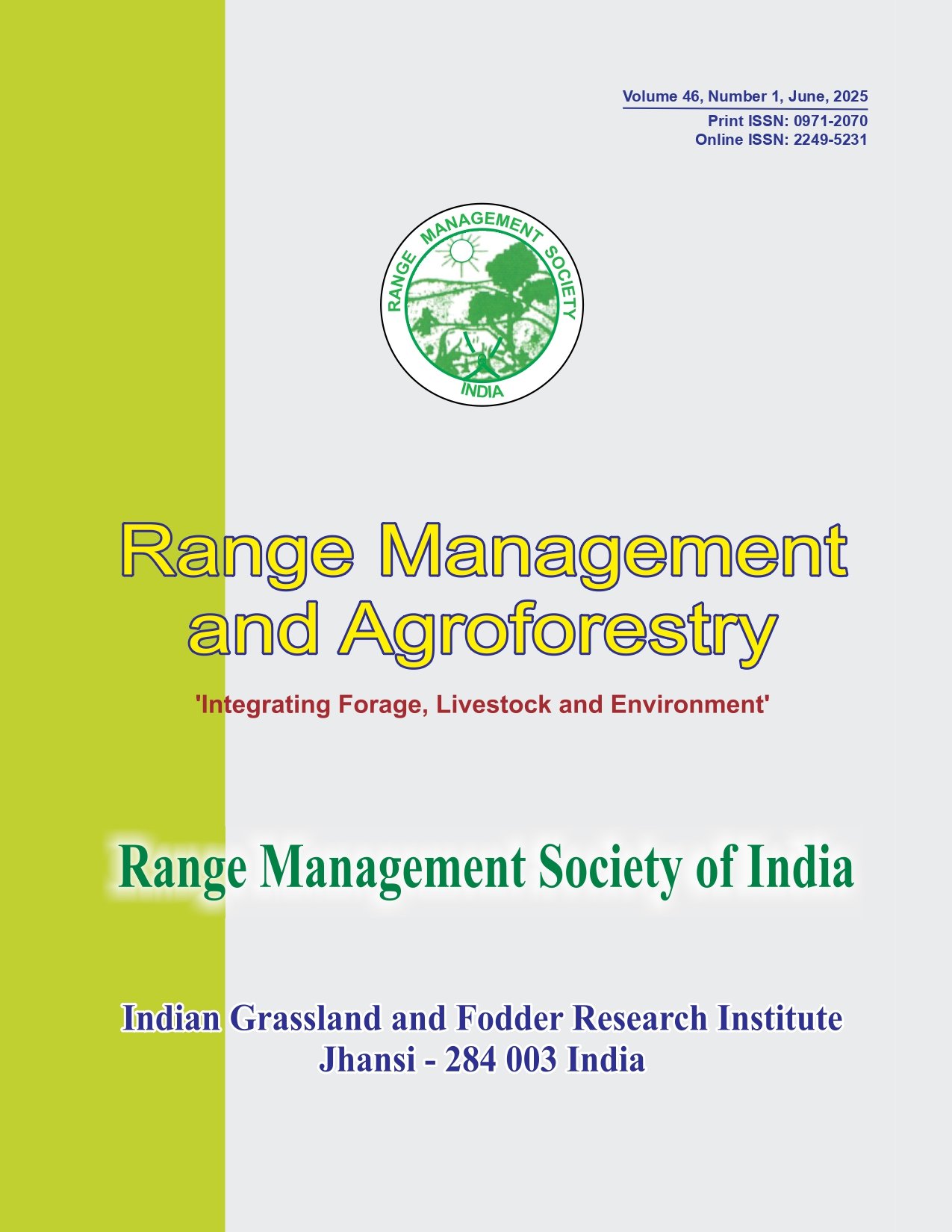Stability analysis for forage yield in Cenchrus ciliaris under hot arid climate
Keywords:
Dry matter yield, Environment, Genotype, Green fodder yield, Regression coefficientAbstract
A field experiment was conducted from 2010 to 2014 at Jodhpur to assess the stability of ten genotypes of Cenchrus ciliaris. The genotypes were sown in a randomized complete block design with three replications under rainfed conditions. Observations were recorded on fodder yield and it components from the same plots at different monsoonal growth stages for the period under study. Pooled analysis showed that variance due to environments was significant for all the characters. Variance due to genotypes was significant for plant height at first cut, dry matter yield of first cut and total dry matter yield. G x E interaction was also significant for all the characters, except green fodder yield of the first cut, which indicated that the behaviour of genotypes differed over the time. Significant mean squares due to environment (linear) indicated the environmental influence on the performance of the genotypes. G x E (linear) was higher in magnitude than pooled deviation (non-linear) for plant height at second cut, tiller production at both the cut, green fodder yield of second cut and total green fodder yield. Genotype CAZRI 231 and CAZRI 2177 were found stable for green fodder production, whereas CAZRI 231 and CAZRI 327 showed suitability for higher dry matter production for wider environmental conditions.




